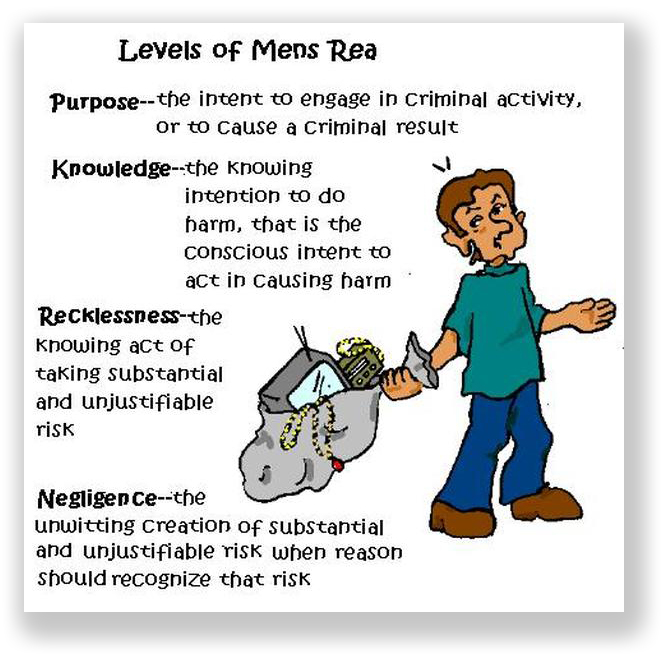This week:
Just Sayin’
FBI Admits To Being Child Porn Site Operator
Supreme Court Grants Review Of Another ACCA Case
Are You Disrespectin’ Me?
11th Circuit To Sit On Johnson Second-And-Successive Motions Pending Supreme Court Decision In Welch
Sentencing Commission Seems Focused On Easing Compassionate Release Guidelines
Action On Sentencing Reform Jeopardized By Mens Rea Debate
JUST SAYIN’
Crack cocaine entrepreneur Lamont Robinson did what 94 percent of all Federal defendants did – he cut a deal. His plea agreement was comprehensive, stipulating criminal history, drug quantity involved in the offense, and agreed-on sentencing range.
The government and Lamont also agreed that, “neither a downward nor an upward departure from the Stipulated Guidelines Range . . . is warranted,” and that “neither party will seek any departure or adjustment pursuant to the Guidelines that is not set forth herein . . . [n]or . . . suggest that the Court sua sponte consider any such departure or adjustment.” (“Sua sponte” means “on its own motion”).
 Despite the rather straightforward language in the plea agreement, the AUSA argued in his sentencing memo under that Lamont “was an active, managing member of the” criminal conspiracy and that he “held a managerial role” in the conspiracy. The sentencing judge heard the words “managerial role” and decided to add a 2-level enhancement regardless of what the parties had agreed to.
Despite the rather straightforward language in the plea agreement, the AUSA argued in his sentencing memo under that Lamont “was an active, managing member of the” criminal conspiracy and that he “held a managerial role” in the conspiracy. The sentencing judge heard the words “managerial role” and decided to add a 2-level enhancement regardless of what the parties had agreed to.
Lamont cried foul. The government argued it had not asked for the leader/manager adjustment, but instead was just arguing for the high end of the sentencing range. “You know,” the AUSA seemed to smarm, “I’m just sayin’.”
The 2nd Circuit agreed with Lamont’s Sec. 2255 claim that the Feds breached the plea agreement, and sent his case back for resentencing in front of a new judge. The Court said “the government used the Guidelines’ term of art “manager,” in an entirely conclusory fashion, to describe his conduct. Using the terminology of the Guidelines’ provision to characterize [Lamont’s] role, without reference to a single fact supporting that characterization, could have served no purpose other than to call the district court’s attention to the possibility of a role enhancement – in effect, to argue for that enhancement. The government’s disclaimers to the contrary do not insulate its conduct.”
United States v. Robinson, Case No. 13-3683-cr (2nd Circuit, Jan. 15, 2016)
FBI ADMITS TO BEING CHILD PORN SITE OPERATOR
 For nearly two weeks last year, the FBI operated one of the Internet’s largest child pornography websites, allowing users to download thousands of illicit images and videos from a government site in the Washington suburbs.
For nearly two weeks last year, the FBI operated one of the Internet’s largest child pornography websites, allowing users to download thousands of illicit images and videos from a government site in the Washington suburbs.
USA Today reported last Friday that the operation — details of which remain secret — was at least the third time the FBI has taken control of a child pornography site but left it online in an attempt to catch users. In each case, the FBI infected the sites with software that enabled agents to identify hundreds of users.
DOJ has acknowledged in court filings that the FBI operated the site, known as Playpen, in February 2015. At the time, the site had over 215,000 users and links to more than 23,000 sexually explicit images and videos, including more than 9,000 files that users could download directly from the FBI.
Previously, agents were told they should not allow images of child porn to become public. The Justice Department has said that once those images leave the government’s control, no one can stop them from being copied and re-copied to other parts of the Internet. Officials acknowledged the risks, but said they had no other way to identify the people accessing the sites.
SUPREME COURT GRANTS REVIEW OF ANOTHER ACCA CASE
The Supreme Court last week granted review of another ACCA case, this one from the 8th Circuit.

The issue may seem arcane, but it’s not. Under the ACCA, anyone caught with a gun after getting convicted of three drug trafficking or violent crimes gets a mandatory minimum 15-year sentence. Four qualifying violent crimes are identified by name: burglary, arson, extortion or use of explosives. However, courts have ruled that the only burglaries that count must contain all of the elements of traditional, common law burglary – entering or staying in a building with the intent of committing a felony.
A lot of people have gotten breaks because some state burglary statutes define “building” too broadly, to include, for example, a car or a boat. If the statute says “building or vessel or boat” (that is, defines the element alternatively), the courts can look at the state court record to see which of the three the defendant broke into. But if the statute only says “building,” and “building” is identified elsewhere in the statute as “structure, car or vessel,” the statute itself is too broad for an ACCA predicate, and courts cannot save it by looking at the state court record.
The central elements of burglary – (1) entering or staying (2) in a building (3) without authorization (4) to commit a felony – have to be proven to a jury beyond a reasonable doubt. But sometimes, definitions are found elsewhere in the criminal code that are treated just as “means” and not elements. Mathis is an 8th Circuit case in which the definition of “occupied structure” in the burglary statute is much too broad for a conviction to be used as an ACCA predicate. However, another Iowa statute defined “occupied structure” alternatively. The issue in Mathis is whether a Federal court has to decide whether a crime counts under the ACCA solely by reading the statute in question, or whether it can shop its way through a state’s entire criminal code for other definitions. Relying on the state’s whole criminal code makes it easier to find that a prior state conviction qualifies as an ACCA predicate.
Mathis will probably be decided by the end of June.
Mathis v. United States, Case No. 15-6092 (Jan. 19, 2016)
Arnaldo Cabrera’s decision to buy a gun for a government informant was not very smart. The judge at HIS felon-in-possession trial did not think much of Arnaldo’s claim that the cops had doctored a recording of the transaction, either.
 Arnaldo did not testify in support of his tape-doctoring theory (for which the evidence was tissue thin). At senten-cing, the judge increased Cabrera’s sentence be-cause of his “fantastic” claim that the tape was altered, and because Cabrera did not testify in support of his claim. The judge told Arnaldo that his behavior had “evinced a pretty complete disrespect for the law and for these proceedings generally.”
Arnaldo did not testify in support of his tape-doctoring theory (for which the evidence was tissue thin). At senten-cing, the judge increased Cabrera’s sentence be-cause of his “fantastic” claim that the tape was altered, and because Cabrera did not testify in support of his claim. The judge told Arnaldo that his behavior had “evinced a pretty complete disrespect for the law and for these proceedings generally.”
Last Friday, the 6th Circuit threw out the sentence, holding that the district judge wrongly punished Cabrera for exercising his 5th Amendment right against self-incrimination by raising his sentence because he had not testified.
The opinion also held that sentencing Cabrera higher for raising the tape-doctoring claim punished him for exercising his 6th Amendment right to defend himself. A defendant has “the right to challenge the State’s case against him using the arguments he sees fit,” the 6th Circuit said, and Cabrera “plainly had a right to test the government’s case by raising the arguments he considered meritorious.”
United States v. Cabrera, Case No. 14-5572 (6th Cir., Jan. 22, 2016)
11TH CIRCUIT TO SIT ON JOHNSON SECOND-AND-SUCCESSIVE MOTIONS PENDING SUPREME COURT DECISION IN WELCH
The 11th Circuit ruled last Thursday it would hold motions filed by ACCA prisoners seeking permission to file a second Sec. 2255 motion raising Johnson until the Supreme Court rules on Welch v. United States.
 Earlier this month, the Supreme Court announced it would hear Welch, and decide whether last summer’s ruling in Johnson v. United States would retroactively apply to inmates whose ACCA sentences were already final.
Earlier this month, the Supreme Court announced it would hear Welch, and decide whether last summer’s ruling in Johnson v. United States would retroactively apply to inmates whose ACCA sentences were already final.
The 11th Circuit already held that Johnson is not retroactive, but – recognizing that the Supreme Court may well overrule it – the Court of Appeals has decided it will sit on motions filed by inmates who want permission under 28 U.S.C. Sec. 2244(b) to file a second and successive Sec. 2255 motion until the Supreme Court rules on Johnson retroactivity in Welch. That decision is expected by June.
In re Anthony Johnson, Case No. 16-10011 (11th Cir. 2016)
SENTENCING COMMISSION SEEMS FOCUSED ON EASING COMPASSIONATE RELEASE GUIDELINES
The U.S. Sentencing Commission has tucked an overhaul to compassionate-release guidelines into the proposed 2016 amendments published Jan. 15 in the Federal Register. The change would substantially expand the possibility for aging or sick inmates to be released early.
The Commission has asked for comments on the new guidelines, along with all of the other proposed 2016 amendments, by March 21, 2016.
 The compassionate release proposal creates new avenues for release due to age or sickness. If the language is adopted as written — and it could still change significantly — it would cut a key release threshold from 30 years served to 10 years served. and would acknowledge the merit of compassionately releasing inmates who have previously been ignored or denied. The elderly and sick are high on the list.
The compassionate release proposal creates new avenues for release due to age or sickness. If the language is adopted as written — and it could still change significantly — it would cut a key release threshold from 30 years served to 10 years served. and would acknowledge the merit of compassionately releasing inmates who have previously been ignored or denied. The elderly and sick are high on the list.
Under a sample proposal on which the commission almost begged the public to provide guidance, inmates could get their freedom if they have 18 months or less to live; if they have an incurable, progressive illness; if they have a debilitating injury they would not recover from; or if they are 65 or older and have served at least 10 years or 75 percent of their sentence.
United States Sentencing Commission, Notice Of Proposed Amendments To Sentencing Guidelines, 81 Fed.Reg. 2295 (Jan. 15, 2016)
ACTION ON SENTENCING REFORM JEOPARDIZED BY MENS REA DEBATE
 The Sentencing Reform and Correction Act (“Sriracha”) still is on top of a short list of significant legislation Congress might actually pass in this election year, but a Capitol Hill hearing last Wednesday showed just how tenuous even that bill’s chances are in a bitterly divided Congress.
The Sentencing Reform and Correction Act (“Sriracha”) still is on top of a short list of significant legislation Congress might actually pass in this election year, but a Capitol Hill hearing last Wednesday showed just how tenuous even that bill’s chances are in a bitterly divided Congress.
Last week, the Senate Judiciary Committee heard testimony on a narrow but crucial issue that has emerged as the main political obstacle to criminal justice reform: to what degree prosecutors must prove a defendant’s criminal intent in order to win convictions for certain federal crimes.
For some crimes, federal prosecutors must establish the defendant’s willful intent to break the law — his or her mens rea, or “guilty mind,” in its common legal formulation. But many crimes defined in federal statutes and regulations (and no one knows just how many) do not include willfulness as part of the elements of the offense. This means a jury doesn’t necessarily need to be convinced that defendants knew what they were doing was a crime. A coalition of mainly conservative lawmakers and activists are leading an effort to include a willfulness requirement in S. 2123.
 Congressman Bob Goodlatte argued last week in Politico, a political news website, that the “U.S. Code currently contains nearly 5,000 federal crimes. Recent studies estimate that over the past three decades, Congress has averaged 500 new crimes per decade. In addition to statutory criminal offenses, there are thousands of federal regulations that, if violated, can also result in criminal liability. Many of these laws and regulations impose criminal penalties on people who have no idea they are violating a law.”
Congressman Bob Goodlatte argued last week in Politico, a political news website, that the “U.S. Code currently contains nearly 5,000 federal crimes. Recent studies estimate that over the past three decades, Congress has averaged 500 new crimes per decade. In addition to statutory criminal offenses, there are thousands of federal regulations that, if violated, can also result in criminal liability. Many of these laws and regulations impose criminal penalties on people who have no idea they are violating a law.”
Democratic lawmakers and liberal activists call this a sneak attempt to make it more difficult for the government to prosecute corporations and their executives for crimes against the public welfare. Last Wednesday, the Justice Department told the Judiciary Committee that the “establishment of a default “state of mind,” or mens rea, standard for all existing federal criminal laws … would create massive uncertainty in the law, undermine the enforcement of a multitude of criminal laws, and allow defendants charged with serious crimes – including terrorism, violent crime, sexual offenses, immigration violations, and corporate fraud – to embroil federal courts in extensive litigation and potentially escape liability for egregious and very harmful conduct.”
Dozens of former prosecutors and government officials sent a letter to the Senate leadership last Tuesday supporting Sriracha. According to Roll Call, a legislative newspaper, the letter to Majority Leader Mitch McConnell and Minority Leader Harry Reid focused on improvements it makes to the corrections system. Signers include Michael Mukasey, an attorney general under President George W. Bush, former FBI directors Louis J. Freeh and William S. Sessions, a number of U.S. attorneys and several federal appeals court and district court judges.
A report last Tuesday in Politico said Sen. John Cornyn, Sen. McConnell’s top deputy, has lobbied the majority leader to take up S. 2123 early this year. Politico reported that the bill’s backers say the Senate has to move on criminal justice reform quickly, perhaps as soon as next month, for the measure to have any hope of reaching President Obama’s desk. “The goal is not to get unanimous support,” Cornyn said. “The goal would be to get enough bipartisan consensus so that we could do something important and something the president wants to do, something that Republicans and Democrats want to do.”
Sen. McConnell has not yet agreed to bring the legislation to a floor vote, but his counterpart in the House of Representatives, Speaker Paul Ryan, has said he wants Sriracha on this year’s agenda, and President Obama also expressed his hope the bill would pass in the State of the Union speech earlier this month.
We’ll report every week on the status of legislation, whether it’s moving forward or just standing still.
Legal Information Services Associates provides research and drafting services to lawyers and inmates. With over 20 years experience in post-conviction motions and sentence modification strategy, we provide services on everything from direct appeals to habeas corpus to sentence reduction motions to halfway house and home confinement placement.
If you have a question, contact us using our handy contact page. We don’t charge for initial consultation.
Do you want this newsletter in PDF format? Click here.



